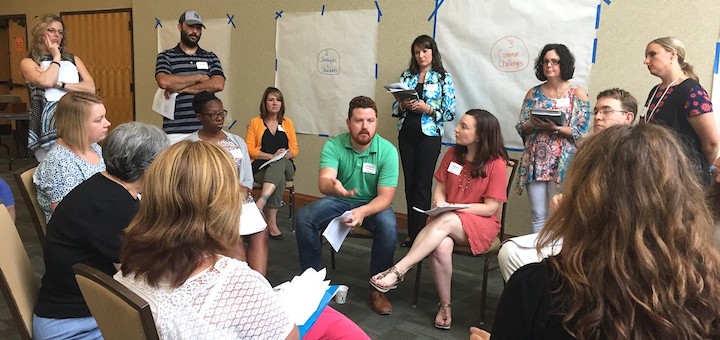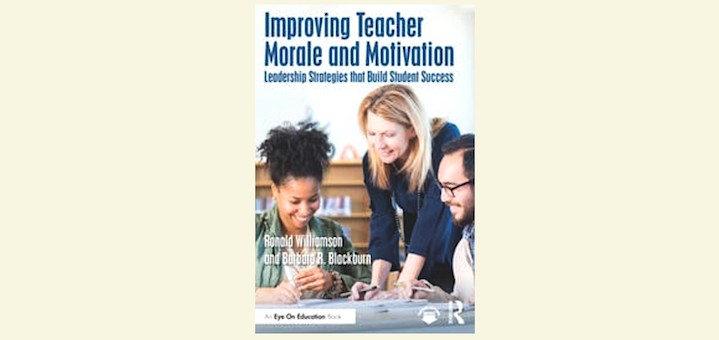Tagged: Ronald Williamson
We are living in an uncertain time with significant stress on institutions, including schools. Leaders play a critical role in helping their school community weather change and continue their commitment to serving each student. Williamson and Blackburn offer actionable advice.
“Improving Teacher Morale and Motivation” by Ronald Williamson and Barbara Blackburn provides school leaders with key strategies for directly addressing teacher morale and effectiveness. Systems coach Matt Renwick reflects on three of the book’s valuable principles.
With its tools, approaches and ideas that can work in any school, Turning It Around by Todd Whitaker and award-winning principal Courtney Monterecy is a valuable addition to the literature on school improvement, writes former principal and leadership expert Dr. Ron Williamson.
Because schools are under increased pressure to improve, there’s a tendency to want immediate results from any innovation. Success only comes when schools have clear vision and purpose, full collaboration, and a commitment to monitor and adjust, write Williamson and Blackburn.
Ron Williamson and Barbara Blackburn advocate for a three-step teacher evaluation process that emphasizes pre- and post-observation conferences designed to promote full teacher ownership and collaboration, with an emphasis on recognizing strengths and planning for growth.
Whether school leaders network using traditional methods like books and conferences or virtual solutions using social media tools and platforms, it’s vital to be a learner and to model learning in your organization. Ron Williamson and Barb Blackburn explore the PLN option.
Meetings can waste time and resources. Education consultants Ronald Williamson and Barbara R. Blackburn’s strategies can help you avoid pitfalls and lead effective meetings with norm setting, planning, agenda setting, and options for decision making. Productivity tools included!
Ron Williamson and Barbara Blackburn describe ways leaders can effectively advocate for schools by developing strategic alliances with local officials, internal groups in schools and external groups in the community. It can be time consuming but definitely worth the effort!
Learning focused schools have a collective growth mindset and a shared belief that every student can learn and grow. Education leaders Ron Williamson and Barbara Blackburn share six characteristics that define such schools and offer ideas about how to accomplish each one.
When trust is present, people are generally more productive, more satisfied with their work, and less likely to search for a new job. Ron Williamson and Barbara Blackburn share six research-based strategies leaders can use to build a trusting, collaborative school community.

















